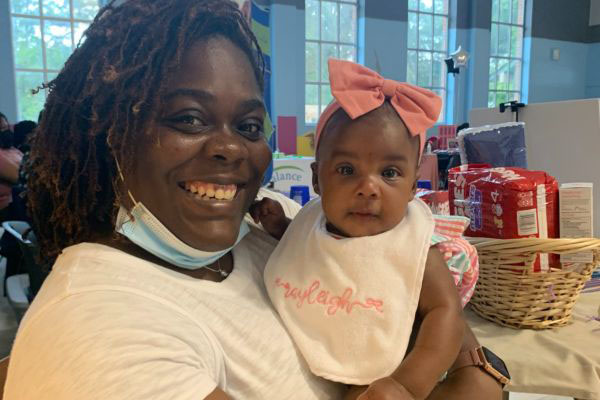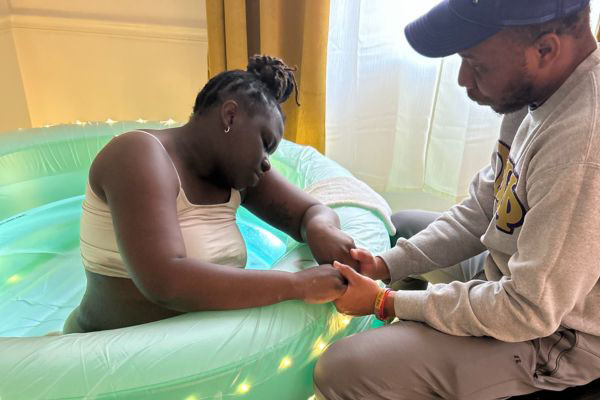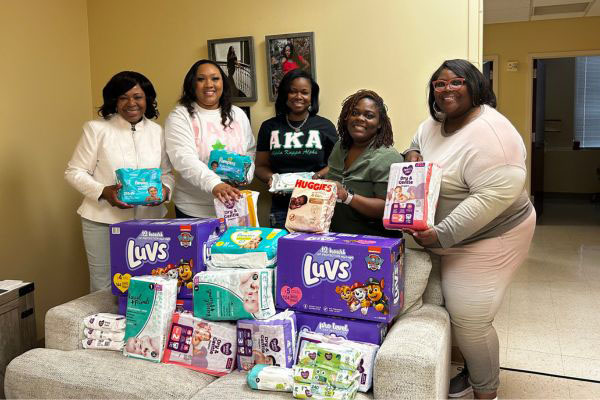In 2021, the maternal mortality rate in the United States skyrocketed from 861 deaths in 2020 to 1,205. That’s a 40% increase. And the number of Black women who died of maternal causes was 2.6 times the rate for White women. Furthermore, in 2020, Alabama had the third highest mortality rate in the nation.
These statistics would be daunting for any women’s healthcare professional. But for Dr. Heather Skanes, these numbers serve as fuel for her passion to serve. Dr. Skanes is a board-certified, Birmingham, Alabama-based obstetrician and gynecologist and the founder of Oasis Women’s Health.
At Oasis Women’s Health, Dr. Skanes provides a wide range of services, including birth control, pregnancy care, and infertility and menopause treatment. The facility is located on Tuscaloosa Avenue, in Birmingham’s historic and majority-Black West End neighborhood.

“I want to make sure that we’re providing access to the community that needs it the most,” Dr. Skanes says.
The facility is also home to the Oasis Family Birthing Center, which she founded in June 2022 in part to address the ongoing health disparities Black families face regarding maternal health. The birth center provides evidence-based individualized prenatal care and increases access to midwifery care within the state of Alabama – for now.
While the Oasis Family Birthing Center was preparing to open its doors, the Alabama Department of Public Health proposed a set of birth center regulations that would prevent licensed professional midwives from working in Alabama birth centers. So far, the regulations haven’t been approved. But lawmakers could rewrite the proposal and reintroduce the legislation. “At this time, there’s nothing that is keeping birth centers safe in the state,” Dr. Skanes says. “So it is an ongoing battle to allow people to provide birth center services.”
Birth centers like the one at Oasis allow midwives to offer their services at a lower cost. “Most people who are having out-of-hospital birth currently are people who can afford to pay $6,000 to $8,000 out of pocket because it’s not covered by most insurances in the state and in many places in the US,” Dr. Skanes says. “I wanted out-of-hospital birth to be affordable and accessible for people of color.”

The Midwife Model
When Heather Skanes was only 12 years old, she knew she wanted to be a doctor. The Washington University graduate would go on to study medicine at Wright State University in Ohio. There she discovered she wanted to focus on women’s health.
“And, of course, being African American myself, I have a particular interest in people of color,” she says.
Next, she completed her residency in obstetrics and gynecology at Morehouse School of Medicine in Atlanta, Georgia – where she was named Chief Resident in her final year of residency. But the Birmingham native always knew she wanted to return home.
Living in other states gave her the opportunity to see different approaches to women’s health care and she was eager to bring what she’d learned to Alabama in hopes of improving maternal outcomes and more.
One of the things she learned was the power of midwifery.
“There’s a significant body of evidence that shows that having midwifery care is particularly beneficial to women of color and people who are in low income areas,” Dr. Skanes explains. “So there’s already a body of evidence that shows that it would improve our outcomes. We also see that in other countries who have similar models to what we’re trying to create here at Oasis, that the outcomes are better. And so rather than continuing to maintain and uphold the same system that has continually gotten us the worst outcomes within the country, in a country who has the worst outcomes in the developed nations, we should try our best to implement evidence based models that will improve our outcomes.”
And what are the outcomes of the midwifery model?
“We can have more Black women having vaginal deliveries, decreasing our C-section rates, which means decreasing our post-birth complication rate; increasing our breastfeeding rates; increasing maternal well-being and satisfaction, which means we’re going to have decreased postpartum depression rates,” Dr. Skanes explains. At Oasis Family Birthing Center expecting patients would first have an appointment with Dr. Skanes to ensure their pregnancy is considered low-risk. If so, they could then be placed under the care of a midwife if that’s what they choose. “You’re getting more individualized care, you get a longer visit, which means you get to discuss more about what’s going on with you,”
Dr. Skanes says when explaining one of the benefits of working with a midwife. “You get a lot of education in the birthing center about different problems that we might anticipate, based on your gestational age. We do breastfeeding education. We do education on what to expect during the pregnancy — what’s normal, what’s not normal. And you get that in a 45-minute visit or an hour visit versus a five-minute visit.” Patients being cared for by midwives will continue to see Dr. Skanes occasionally so she can be aware of any complications that might arise. But with the midwives leading the care for low-risk pregnancies, Dr. Skanes has more time to devote to patients who can’t or choose not to opt for the midwifery model. “So everybody gets much better education,” she says.

How you can help?
There are several ways you can support the work Dr. Skanes is doing at the Oasis Women’s Health and Birthing Center.
“Let the Alabama Department of Public Health know that these are services that you want to have, but also let your legislators know as well that this is something that we deserve in the state of Alabama and it should be protected,” Dr. Skanes says.
Oasis is also always accepting donations of diapers, unused breast pumps and children’s clothing for patients in need.
Follow Oasis at @oasiswomenshealth and facebook.com/oasiswomenshealthllc to stay up-to-date on news about the birthing center, Alabama legislation regarding birthing centers, and more. Dr. Skanes says, “We will continue to provide the services as long as we’re allowed to by the state.”









